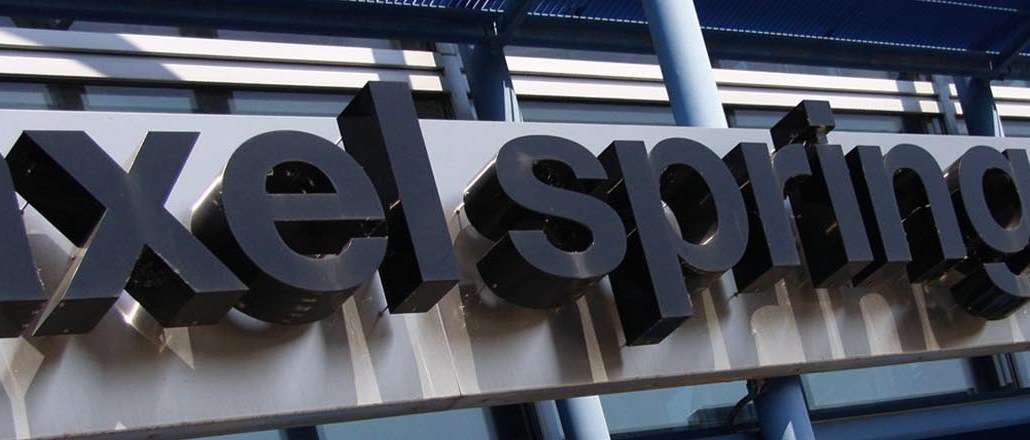Save 50% on a 3-month Digiday+ membership. Ends Dec 5.

Last month, Axel Springer released some fairly enviable financial results for a 70-year-old media company with roots in print: 70 percent of its revenue came from digital, outstripping CEO Mathias Döpfner’s 10-year goal to have half of its revenue come from online products by 2016.
The secret to Axel Springer’s success has been diversification: The company’s focus for growth is on three business models: paid content, the classified ad business and marketing.
“We started with a focus on later-stage investments, such as established business models strongly aligned with our strategy, with rather complex merger and acquisition processes,” said Jens Müffelmann, president U.S.A. of Axel Springer. Two years ago, it needed to change tack, and this strategy broadened out to encompass investing in more early-stage development businesses, and targeting the U.S. Here’s how the publisher is investing in digital companies to weather the storms of disruption.
Early-stage investments
Since 2013, Axel Springer has made more than 90 investments in early-stage businesses, spending north of a cumulative €100 million ($114 million). Helpfully, the publisher is headquartered in Berlin, which has a fertile startup hub.
“Early stage is different,” said Müffelmann. “It’s a broader, more agnostic investment approach, faster execution and also an opportunistic investment horizon.“
Early-stage investment is also appealing because, like many incumbent organizations, Springer wants to feed off of the early-stage motivation of entrepreneurs.
“With early-stage investing, you’re placing bets in unproven technology or business models,” said CB Insights’ analyst Nikhil Krishnan. “While some investors choose to wait for maturity and stability in companies, it also means that when they do so, they’re generally paying more at higher premiums in exchange for the developed brand or company.” But if the early-stage bets succeed then the investor stands to do very well.
Ad position: web_incontent_pos1
One particular success has been Runtastic, an Austrian fitness app Axel Springer took a majority stake in in 2013, at a company valuation of €20 million ($23 million). Two years later, in August 2015, Springer sold the fitness app to Adidas, the valuation grew to €220 million. This meant a net capital gain of €80 million ($91 million) for Springer. But Runtastic’s exit is a rare case. The media company claims to be less interested in what the financial gain is than what knowledge it can share with these startups.
“In the case of Runtastic, we supported them with our existing marketing power across Germany and Europe in order to drive awareness for their product,”said Müffelmann. “We act as partners and foster an environment in which founders stay as managers as well as shareholders. We’re more like a patchwork family. We don’t want to kill the entrepreneurial spirit but rather want to help them accelerate.”
Targeting the U.S.
The U.S. is an obvious attractive market for Axel Springer to target: Six of the 10 top global startup hubs are based in the U.S. The opportunity for scale is far greater than Germany, and in the case of technology and advertising, it’s more advanced. Springer dipped its toe in the waters with a minority stake in Airbnb, after Döpfner met founder Brian Chesky and was “thrilled” with the idea of the sharing economy, sparking a stronger appetite for more minority investments.
Springer’s current U.S. portfolio has a strong focus toward digital-content businesses. It owns Business Insider and has shares in NowThis, Mic, Ozy and virtual reality business Jaunt. Most of these present opportunities for content sharing. NowThis, for instance, shares co-branded content with Springer on footage about the refugee crisis.
Business Insider is Springer’s only majority share after the publisher increased its stake from 9 percent to 97 percent from January to September 2015 (although its global majority stake portfolio is 200). Again, there is a content collaboration, Business Insider features financial information from Axel Springer owned Finanzen.net. Business Insider has also expanded to Germany and will launch in Poland in the second quarter.
Ad position: web_incontent_pos2
Regarding early-stage investments, Müffelmann said the company will be adjusting to focus on classifieds and marketplaces who have the potential to disrupt the old guard. According to Thomas Caldecott, media analyst at analytics firm Enders, the classified market is a lucrative one with fewer competitors than online news, and those like Springer who have invested in classified business early have benefited from its fast growth, high margins and high barriers to entry. But now it may be too late.
“The potential obstacle for Springer in replicating these successes is the maturity of the markets in which it is acquiring classified portals,” he said. “The print-to-digital transition that drove growth is fairly advanced now in most markets and it may be that Springer has entered classifieds too late when the leaders are already established and competition is more fierce.”
More in Media

What publishers are wishing for this holiday season: End AI scraping and determine AI-powered audience value
Publishers want a fair, structured, regulated AI environment and they also want to define what the next decade of audience metrics looks like.

Digiday+ Research Subscription Index 2025: Subscription strategies from Bloomberg, The New York Times, Vox and others
Digiday’s third annual Subscription Index examines and measures publishers’ subscription strategies to identify common approaches and key tactics among Bloomberg, The New York Times, Vox and others.

From lawsuits to lobbying: How publishers are fighting AI
We may be closing out 2025, but publishers aren’t retreating from the battle of AI search — some are escalating it, and they expect the fight to stretch deep into 2026.
Ad position: web_bfu